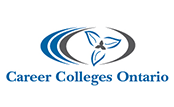Pharmacy Technician Program Outline
(Please note that programs may be changed or upgraded to meet the demands of industry without notice)
Core Pharmacy Technician Courses:
Pharmacy Fundamentals
Overview of the history of pharmacy, legislation and health care systems; roles of the pharmacist and technician; explains the various pharmacy organizations in the province and ethical standards. Understanding dispensary, medical and pharmaceutical terminology, prescription interpretation and the abbreviations, introduction to various dosage forms, the various therapeutic classifications of drugs.
Pharmacy Calculations
Understanding different units of measures including metric, apothecary and household system and their conversions from one to another. Working with drug strength, dilution, drop rates for calculating drug dosage, preparation of extemporaneous compounding including intravenous drugs, application of business mathematics and third party billing.
Introduction to Human Anatomy and Physiology
Explore the various body systems and gain a basic understanding of the structure and functions of different organs and systems of the body and how they correlate with drug action. Learn common diseases with their pathophysiology.
Pharmacology
Learn the basic fundamentals of pharmacology, classification of drugs based on body system and therapeutic uses, mechanism of drug action, side effects, auxiliary labels, generic and brand name drugs, drug schedules, prescription and non-prescription drugs, legal requirements for narcotics and other drugs.
Pharmacy Compounding
Equipment use and maintenance, measuring, mixing and packaging techniques with pharmaceutical elegance, preparation of mixtures, creams and ointments, calculations related to compounding
Sterile Products and Aseptic Technique
Hands on training for preparation of sterile products under laminar airflow hood, knowledge on basic microbiology and prevention of microbial growth, aseptic technique including chemotherapeutics; sterilization methods and handling of biohazard materials.
Pharmacy Software
Hands on training for operation and maintenance of the pharmacy software “Kroll”, entering prescriptions and printing labels, maintaining patient’s profile, drug search, doctor search, special instructions, third party billing and inventory management.
Professionalism and Communication Skills
Review verbal and written communication skills, customer service, dealing with health care professionals, peers and dispensary staff; problem solving techniques, handling complaints, and confidentiality.
Community Pharmacy Practice
Introduction to legal prescription, third party insurance plans, record keeping, inventory control and issues pertaining to security in community pharmacy. Other topics are patient safety, medication error prevention, health care products and devices, multi-medication compliance aids and procedures in long-term care pharmacy.
Community Pharmacy Dispensing
The focus of this course is on the practical side of community pharmacy dispensing including prescription processing. In the dispensing lab component the students apply the knowledge of pharmacology, prescription interpretation, pharmacy law, pharmacy software and calculations while practicing prescription dispensing in a simulated community pharmacy setting.
Hospital Pharmacy Practice
Learn about hospital organizations and the roles between different health care professionals, legislation governing hospital operations including review of drug management and distribution systems, ward stock, unit dose, automation and inventory control.
Pharmacy Legislation
This course introduces the student to components of jurisprudence pertaining to pharmacy, drug schedules and provides an understanding of the Canadian regulatory bodies associated with pharmacy practice.
Practical Placement (360 hours)
During the last 9 weeks of the program the student will supplement their in-class training with an “on the job” practical placement in a hospital pharmacy (160 hours) and a community pharmacy (200 hours). The placement provides an opportunity to apply the lessons learned in the classroom, gain confidence, and open doors to future employment. Successful completion of the 260 hours of supervised placement is necessary for graduation.
Workplace Skills:
CPR and First Aid Certification
A two-day certified course in First Aid and CPR for adults is provided at the College.
Student Success Strategies
Emphasis is placed on thinking about success from day one and developing the non-technical skills to enhance personal, academic and career success. Topics include: goal setting, time management, learning styles, memory techniques, note taking and test writing techniques.
Computing Essentials for Pharmacy Practice
- Learn the basics of the Windows operating system, computer hardware, and software
- Practice effective file management
- Explore various Internet search techniques
- Obtain touch typing skills with a goal of 45 words per minute before graduation
- Create, edit, and print Microsoft Word letters and reports
- Format documents and control the page appearance
- Create, modify, and print Microsoft Excel workbooks
- Perform calculations using formulas and functions
- Apply formatting to a worksheet
Career and Employment Strategies
This module takes the students through the entire job search process including:
- Where and how to look for a job
- Effective resume preparation
- Creating a cover letter tailored to the position
- Interview preparation
- Job search management
- Self-confidence and self-esteem building
- Mock interviews
- Follow up after the interview


